on Osip Mandelstam, a biography by Ralph Dutli, translated from the German by Ben Fowkes
In his introduction to Osip Mandelstam, Ralph Dutli notes the ways in which this poet “fills the bill of a legendary literary saint,” but then qualifies that portrayal: “… the persistent reduction of the poet’s life to a tale of martyrdom has led to a failure to recognize Mandelstam’s literary greatness.” It’s often said that the allusive density of Mandelstam’s language, and the strain of rendering his rhythms and rhymes in English, keep his work at a distance from the anglophone reader. But there’s more. A great lyric poet asks us at the outset to reconsider the lyric impulse itself as it reemerges in unanticipated sounds. A preference for diaristic, didactic poems, always available during times of protest, may limit one’s patience for an acutely reactive but idiosyncratic poet like Mandelstam.
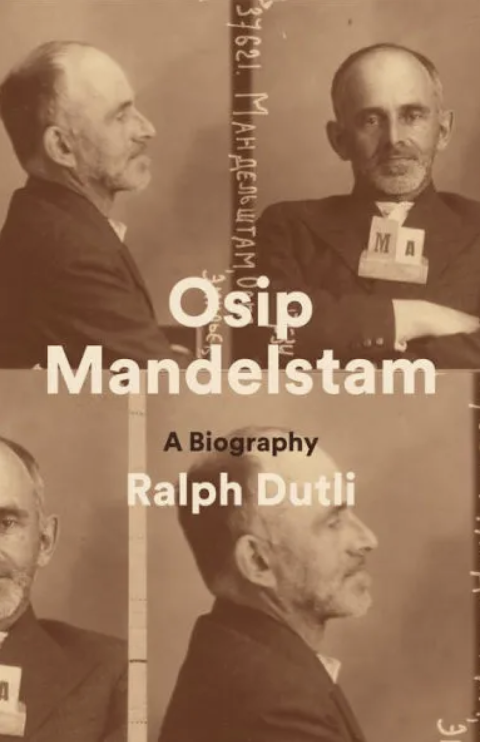 At the end of “Notre Dame,” made in 1912 at age 20, in which Mandelstam writes, “from crude weight / Someday I too will fashion the beautiful,” he tells us what’s critical to his artistry: classicism and Judeo-Christian thought, the habit of aspiration, undying beauty (versus the passing hideousness), and the “crude weight” of his personal materials. His early poems, says Dutli, “attempt to unify all the elements of Western and European culture,” but we could also say that Mandelstam simply regarded all of those essential materials as available for contemplation. He famously called this urge “a yearning for world culture.” For his love of Hellenism and affiliation with Dante, he has been labeled an “archaist” – yet every one of his poems is derived from the actuality of his experience. Mandelstam thought of himself as an “internal émigré,” like Dante, banished to wander and seek shelter through his own country. At the end of her poem “A land not mine, still,” Anna Akhmatova wrote, “I cannot tell if the day / is ending, or the world, or if / the secret of secrets is inside me again.” But her lifelong friend Mandelstam, utterly given to utterance and the rise of inner chaos into form and sound, knew the secret of secrets was omnipresent, even if elusive. If, as Mandelstam wrote, “classical poetry is perceived as that which ought to be,” he also perceived political violence as a sickening inevitability. He suffered the consequences of Stalin’s purges in the context of millennial upheavals.
At the end of “Notre Dame,” made in 1912 at age 20, in which Mandelstam writes, “from crude weight / Someday I too will fashion the beautiful,” he tells us what’s critical to his artistry: classicism and Judeo-Christian thought, the habit of aspiration, undying beauty (versus the passing hideousness), and the “crude weight” of his personal materials. His early poems, says Dutli, “attempt to unify all the elements of Western and European culture,” but we could also say that Mandelstam simply regarded all of those essential materials as available for contemplation. He famously called this urge “a yearning for world culture.” For his love of Hellenism and affiliation with Dante, he has been labeled an “archaist” – yet every one of his poems is derived from the actuality of his experience. Mandelstam thought of himself as an “internal émigré,” like Dante, banished to wander and seek shelter through his own country. At the end of her poem “A land not mine, still,” Anna Akhmatova wrote, “I cannot tell if the day / is ending, or the world, or if / the secret of secrets is inside me again.” But her lifelong friend Mandelstam, utterly given to utterance and the rise of inner chaos into form and sound, knew the secret of secrets was omnipresent, even if elusive. If, as Mandelstam wrote, “classical poetry is perceived as that which ought to be,” he also perceived political violence as a sickening inevitability. He suffered the consequences of Stalin’s purges in the context of millennial upheavals.
Mandelstam was born in 1891 in Warsaw, then controlled by Czarist Russia. Although anti-Semitism was prevalent throughout the areas between Poland and Moscow, his middle-class Jewish parents moved the family to St. Petersburg where Osip was enrolled in the reputable Tenishev School, and thus Russian, not Yiddish or Polish or any of the romance languages Mandelstam esteemed (and some of which he mastered and translated), became his language. But in 1908, wishing to attend university, he was deterred by a law specifying that Jews could comprise no more than three per cent of enrollment. This led to his baptism as a Christian in 1911 – though he was never an accomplished student. Mandelstam never disavowed his Jewish roots. He referred to the “Judaic chaos” within himself, meaning a passion for living with anxious avidity. The transciency and perils of Jewish life, the uncertainty of national affiliation, and the provisionality of language all combined to shape the young man’s psyche. His friends and acquaintances would later describe him as excitable, tense, and argumentative. His wife Nadezhda, whose memoir Hope Against Hope provided the first sustained profile of Mandelstam’s life, character and creative habits, speaks of his “abhorrence of power.”
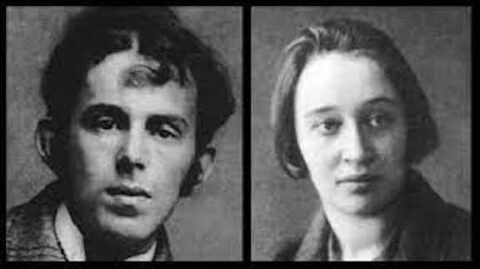 Dutli’s biography is the first text I’ve encountered that effectively integrates the life with the emergence of the poems, a pivoting from incident to verse that clarifies the bonding of experience to imagery and statement. Mandelstam was a deeply humane poet but never sententious. What Adam Zagajewski perceived in Bruno Schulz may be applied to Mandelstam: “the classic theme of the struggle to maintain the tension of an inner life, which is incessantly threatened by trivial, external circumstances and melancholy … Imagination is encircled by enemies” (from Two Cities). In his late teens, composing the poems that would be published in Stone (1913), Mandelstam held socialist values and progressive sympathies. But with the Revolution in 1917, he produced poems that pictured the uprising as a disaster. He met Nadezhda in the Crimea in 1920; they married in Kviv in 1922. In 1923 came his second major collection, Tristia, and the maturation of a synthetic process blending classical citation and archetypal references with Modernist imagery. But by the mid-1920s, he was no longer allowed to publish his poems and struggled to find work as a translator. He experienced his first heart attack in 1925; Nadezhda had tuberculosis in 1926. The two of them then led an itinerant life, at first permitted to reside at a remove from Moscow, as in Voronezh in 1934, then at a rest home Samatikha which was merely a pause along the way to a camp near Vladivostok where Osip died in 1938.
Dutli’s biography is the first text I’ve encountered that effectively integrates the life with the emergence of the poems, a pivoting from incident to verse that clarifies the bonding of experience to imagery and statement. Mandelstam was a deeply humane poet but never sententious. What Adam Zagajewski perceived in Bruno Schulz may be applied to Mandelstam: “the classic theme of the struggle to maintain the tension of an inner life, which is incessantly threatened by trivial, external circumstances and melancholy … Imagination is encircled by enemies” (from Two Cities). In his late teens, composing the poems that would be published in Stone (1913), Mandelstam held socialist values and progressive sympathies. But with the Revolution in 1917, he produced poems that pictured the uprising as a disaster. He met Nadezhda in the Crimea in 1920; they married in Kviv in 1922. In 1923 came his second major collection, Tristia, and the maturation of a synthetic process blending classical citation and archetypal references with Modernist imagery. But by the mid-1920s, he was no longer allowed to publish his poems and struggled to find work as a translator. He experienced his first heart attack in 1925; Nadezhda had tuberculosis in 1926. The two of them then led an itinerant life, at first permitted to reside at a remove from Moscow, as in Voronezh in 1934, then at a rest home Samatikha which was merely a pause along the way to a camp near Vladivostok where Osip died in 1938.
Stalin’s efforts to erase Mandelstam created serious difficulties for future biographers. Mandelstam’s poems were preserved by Nadezhda and a few friends who had memorized them. Dutli employs every available remembrance of Mandelstam to create substantial impressions of both his early years and final ones. Despite Dutli’s caution that we refrain from emphasizing Mandelstam’s martyrdom, the inevitability of his fate, predicted several times by the poet, sets the tone and pacing of the narrative. Mandelstam’s death sentence is usually attributed to his brazen recital of a poem referred to as “the Stalin epigram” (one of the listeners was an informant). But Dutli suggests that not only did Stalin never read the poem but perhaps had never been informed of it. The main point here for me is that Mandelstam was cancelled by other poets and writers. For instance, in 1931, organizations of official Soviet writers opposed the Mandelstams’ request to take up residence in Leningrad – just one in a series of betrayals by fellow artists. It’s worth pondering how the betrayers’ allegiance to supposedly progressive values could sanction Mandelstam’s erasure.
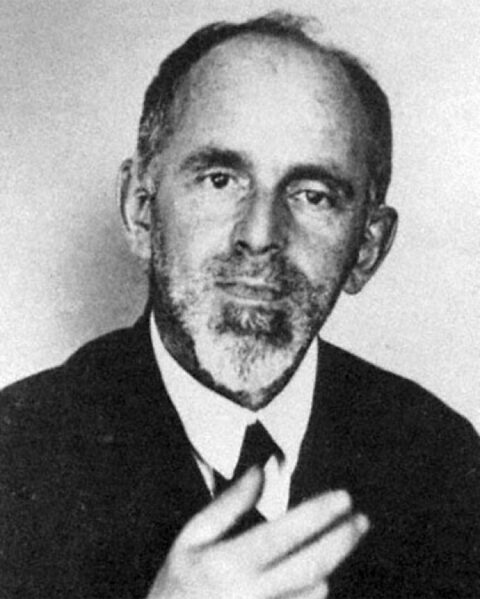 Now, twenty years after Dutli’s biography appeared in German, Osip Mandelstam is suddenly our primary narrative on Mandelstam and his work. Dutli included his own translations of the poems in the German edition. However, his translator, Ben Fowkes, decided to use existing translations in English, selected from a broad selection of 29 texts. A few of the more recent, lively translations were not accessed, such as Andrew Davis’ translation of The Voronezh Notebooks. Fowkes has given us a fluid, highly attuned version of Dutli’s prose that intrigued me from first to last.
Now, twenty years after Dutli’s biography appeared in German, Osip Mandelstam is suddenly our primary narrative on Mandelstam and his work. Dutli included his own translations of the poems in the German edition. However, his translator, Ben Fowkes, decided to use existing translations in English, selected from a broad selection of 29 texts. A few of the more recent, lively translations were not accessed, such as Andrew Davis’ translation of The Voronezh Notebooks. Fowkes has given us a fluid, highly attuned version of Dutli’s prose that intrigued me from first to last.
Emile Cioran described Paul Celan as “a man profoundly wounded, too tormented to take refuge in skepticism.” Such was Mandelstam. In his biography, Dutli manages to give us the entire man – how he lived and how he composed (thanks to Nadezhda). Ilya Kaminsky has suggested that Mandelstam’s example causes us to ask, “What is a lyric impulse in a time of war and revolution?” Dutli’s Mandelstam gives us a timely opportunity to devise our own responses to the vital question.
[Published by Verso on May 30, 2023, 432 pages, $39.95 hardcover]
On The Seawall reviews by Ron Slate of related interest:
on Modernist Archaist: Selected Poems of Osip Mandelstam, edited by Kevin Platt (2008)
on Soutine’s Last Journey, a novel by Ralph Dutli, translated from the German by Katharina Rout (2020)
* * *
on Natality: Toward a Philosophy of Birth by Jennifer Banks
In Unlearning With Hannah Arendt, Marie Luise Knott writes, “In about 1950, Arendt gave a lecture with the enigmatic title ‘The Eggs Speak Up.’ Explained by the epigraph she chose from ‘A War,’ by Randall Jarrell: ‘There set out slowly, for a Different World, / At four, on winter mornings, different legs … / You can’t break eggs without making an omelette / — That’s what they tell the eggs.’” The four lines were composed in response to the famine imposed on Ukraine by Stalin. Knott cites the lecture in a chapter on Arendt’s emphasis on “forgiveness” which, along with “laughter,” “translation” and “dramatization,” provide an armature for clarifying Arendt’s humanism. Jarrell’s eggs connote both the food withheld from Kviv, and the people broken by starvation.
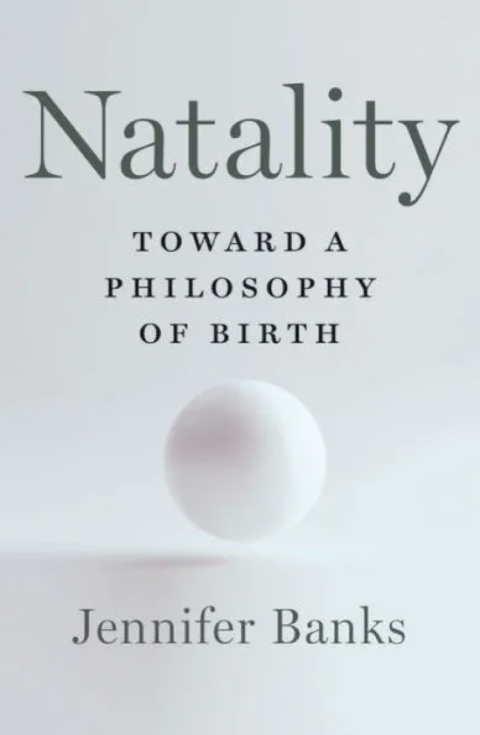 The title of Jennifer Banks’ Natality derives from Arendt’s creative use of the term in The Human Condition (1958) to describe the capability essential to continuing our existence in the face of totalitarianism. So I’m imagining that Arendt was especially attuned to Jarrell’s eggs as metaphors for ruined potential. “Natality,” says Banks, “conveys the idea that birth as a beginning represents (in Arendt’s words) ‘the supreme capacity of man,’ a capacity inherent in human life that is the ‘miracle that saves the world, the realm of human affairs, from its normal, “natural,” ruin.’” When we say birth in this context, do we mean actual birthing or birth as metaphor for constant renewal in one’s life? Banks continues: “Natality begins in that more neutral territory with a rather modest recognition: that we all were born and that our births indelibly shape human life from beginning to end. It challenges us to look at birth’s full spectrum and diversity.”
The title of Jennifer Banks’ Natality derives from Arendt’s creative use of the term in The Human Condition (1958) to describe the capability essential to continuing our existence in the face of totalitarianism. So I’m imagining that Arendt was especially attuned to Jarrell’s eggs as metaphors for ruined potential. “Natality,” says Banks, “conveys the idea that birth as a beginning represents (in Arendt’s words) ‘the supreme capacity of man,’ a capacity inherent in human life that is the ‘miracle that saves the world, the realm of human affairs, from its normal, “natural,” ruin.’” When we say birth in this context, do we mean actual birthing or birth as metaphor for constant renewal in one’s life? Banks continues: “Natality begins in that more neutral territory with a rather modest recognition: that we all were born and that our births indelibly shape human life from beginning to end. It challenges us to look at birth’s full spectrum and diversity.”
When considering the subtitle of her book, “toward a philosophy of birth,” I emphasize the word “toward.” Banks offers a sweeping view of “birth’s full spectrum and diversity” that doesn’t seek to erect a highly structured philosophy. Arendt herself had become wary of systematic philosophies – initially, after her experiences with Heidegger, and later, after the end of World War II when she felt Existentialism not only failed to incorporate the horrors of then-recent experiences in its concepts but also regarded life as absurd. Banks’ approach to illuminating natality is aspirational: “I’ve hungered for a different set of principles, new models, a culture less reconciled to its own extinction. I keep imaging it: a society rooted in gestation, intimacy, vulnerability, growth, creativity, reciprocity, change, and otherness – in that strange and unrivaled symbiosis, the entering into the bloodstream of another human being.”
Banks gives us seven profiles of natality in thought and action through chapters on Arendt, Friedrich Nietzsche, Mary Wollstonecraft, Mary Shelley, Sojourner Truth, Adrienne Rich and Toni Morrison, who “collectively constitute a submerged and surprising counter-tradition about birth’s creativity in modernity in the West.” In Wollstonecraft she finds “a critic of marriage” but not of family, for whom “emancipation meant that [women] would gain the freedoms and ethos necessary to perform their interpersonal duties with steadfastness, strength, and a persevering energy, to care for the people around them and to raise a next generation that had learned the tenderness of deep, selfless affections.” The obvious suddenly occurs to me: here in our family, we support each other without fail, bringing our various talents and qualities to bear on solving problems and caring for our spirits. Why is there such a gap between our family’s ethos and that of our nation? The question ceases to sound banal or futile.
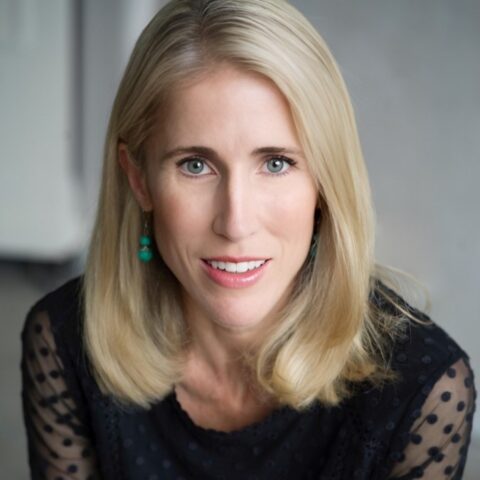 [left: Jennifer Banks] About Rich, Banks writes, “Her most sweeping goal [in Of Woman Born] was not to free woman from the demands of other people (although sometimes a relief from such demands was required), but to grant women the license to direct their creative energies outward at the world, not just inward to the nuclear family. She wanted to derive from women’s procreative bodies and from birth mor radical social, cultural, and political implications.” When a patriarchal model exploits a set of oppressive dualities, natality strives to erode them by exposing “the ambiguities of our being, our vulnerability and dependence, our pain and subjectivity, but also our potent, creative potential.”
[left: Jennifer Banks] About Rich, Banks writes, “Her most sweeping goal [in Of Woman Born] was not to free woman from the demands of other people (although sometimes a relief from such demands was required), but to grant women the license to direct their creative energies outward at the world, not just inward to the nuclear family. She wanted to derive from women’s procreative bodies and from birth mor radical social, cultural, and political implications.” When a patriarchal model exploits a set of oppressive dualities, natality strives to erode them by exposing “the ambiguities of our being, our vulnerability and dependence, our pain and subjectivity, but also our potent, creative potential.”
Banks’ language may be lofty as quoted here and there is some sleeve-tugging in her prescriptive mode. But it is to her credit, and our benefit, that Natality acts first to provoke and to suggest the open-endedness of our potential. Her efforts here are not based on establishing a matriarchy to replace the male-instigated violence of our political and international culture. As with Arendt, the uniqueness of individual contributions – within a field of relations, in politics, in commerce, in the arts – or what Toni Morrison called “what moves at the margin” – can powerfully affect our welfare and wellness. Banks also notes that “Morrison also believed that life entailed living alongside the unconscionable, harrowing, monstrous, and outrageous. Isn’t that what her people had been doing for centuries?” Natality as well doesn’t envision paradise. But just as Sojourner Truth “imagined how birth’s ‘world-breaking’ dimensions could be mined for its ‘world-making’ potential,” Banks shows us how others have exerted themselves in new ways, and allows us to imagine the possibility of such breakages and makings.
[Published by W. W. Norton on May 2, 2023, 240 pages, $27.95 hardcover]